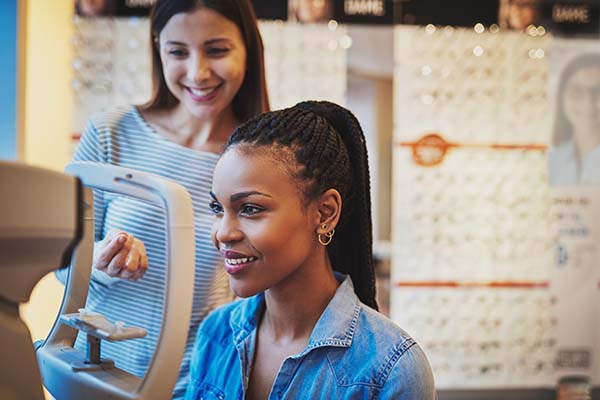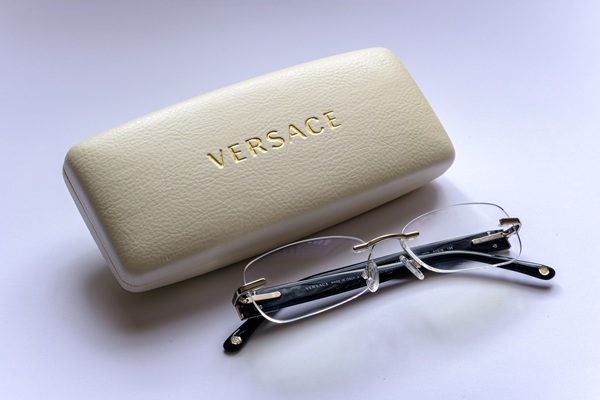Optometry: What To Expect During Your First Eye Exam

Do you have a first-time eye exam coming up? Read on to learn what to expect when you go in for an exam at an optometry office. Optometry exams with an eye doctor are especially important to have on a regular basis. These appointments can keep a patient's eyes in good health while also allowing for the detection of conditions or diseases that might require attention. Additionally, one's vision can be monitored and maintained ensuring that the appropriate resources are provided.
For first-time patients, going to an eye examination can be a bit intimidating, which is normal. Thankfully, optometrists undergo extensive training to perform in a way that ensures that patients are comfortable.
Knowing what to expect from a first-time optometry exam can be helpful for someone who is preparing for their visit. Having an idea of what will occur during the exam may help ease any nerves.
Optometry: What to expect from your first eye exam
Below is an overview of what to expect from a first-time optometry exam. Reviewing this information beforehand can be helpful.
Medical history
First-time optometry patients will likely have to provide some information on their medical and health history. This information can be helpful to the eye doctor when preparing to examine the patient’s eyes. Any medical conditions or genetic issues may also help explain certain abnormalities or imperfections in the eyes. Having this information ready for the first exam can be beneficial and make the appointment run smoothly.
Visual acuity test
Optometrists perform visual acuity tests on patients of all ages. These tests are especially important for people who struggle with their vision. During this part of the optometry exam, the patient should expect to have to read off letters or numbers from a digital monitor or a sign. The optometrist will make a determination about the patient’s eyesight once the test is complete. Depending on the results, the optometrist may recommend a prescription for glasses or contacts.
Glasses and contacts both work to improve vision, allowing for normal activities to be performed, such as reading or driving. Individuals often wonder which route is more suitable, however, it is simply based on preference and the eye doctor's recommendation.
Eye pressure test
Another first-time expectation for someone at an optometry appointment is to undergo an eye pressure test. These tests are extremely helpful for detecting serious eye conditions. During this part of the exam, the patient should expect the optometrist to numb their eye using a special eye drop. Then, the inner pressure will be tested to determine whether or not anything concerning is present. If the optometrist discovers something abnormal, they may run additional tests to come up with a diagnosis and treatment plan.
In the event that glaucoma is detected, the optometrist will likely recommend a number of things, including prescription eye drops and other medications. In serious cases, there may be a need for laser treatment or eye surgery.
Glasses or contacts
For the most part, patients visit the eye doctor because they are experiencing problems with their vision. It is common for patients to undergo an optometry appointment to get started with the process for contacts or glasses. A lot of first-time optometry patients will inquire about either of these options so that the eye doctor can recommend a good treatment route.
Patients can expect the optometrist to thoroughly evaluate their eyes and vision prior to making a recommendation. Glasses or contacts are both great options for vision correction, but some patients may benefit from one over another. For example, those who find it challenging to touch their eyes may benefit from glasses. On the other hand, if one loses things often, having contacts eliminates the need to keep track of glasses.
Other things to know
Optometry offices can also provide resources on maintaining good eye health, which will ultimately lower the chances of developing eye conditions. There are a few tips that an optometrist recommends, which are as follows:
- Eat a diet rich in vegetables and nutrients as this promotes good eye health
- Drink a lot of water on a regular basis to keep your eyes hydrated
- Visit the optometrist at least once a year to be checked for any warning signs
Contact us today
Going to a first-time optometry visit and not sure what to expect? Our team can provide you with further information to better prepare you. Reach out to us today so that we can help answer questions or go over any concerns.
Get more information here: https://www.texasoptical.net or call Texas Optical at (214) 771-7333
Check out what others are saying about our services on Yelp: Read our Yelp reviews.
Recent Posts
The selection of eyewear feels significantly easier when the styles and craftsmanship of Versace eyewear enters the conversation, since bold lines and iconic detailing create an instantly recognizable look. Versace represents the intersection of Italian fashion and Greek mythos, blending confident glamour with symbolism through its signature Medusa logo. The brand is widely associated with…
Many people who work in construction or laboratories wear safety glasses to protect their eyes during the day. However, keeping your eyes safe extends beyond hazards in the workplace. There is a wide variety of household chores and hobbies for which you should wear eye protection. When used consistently, safety glasses help create a safer…
Transitions lenses combine style and convenience to support clear vision without switching between regular glasses and sunglasses. While they were often considered unfashionable in days past, times have certainly changed. Today, transition lenses can be fashionable, chic, and a reflection of your personal style. When designing a pair for you, an optometrist will look at…
Dry eye treatment is important when occasional irritation becomes ongoing discomfort that interferes with daily activities. Many individuals experience dryness, burning, or a gritty feeling in the eyes from time to time. However, when symptoms start to affect reading, screen use, or time outdoors, a structured approach to diagnosis and care helps protect comfort and…


